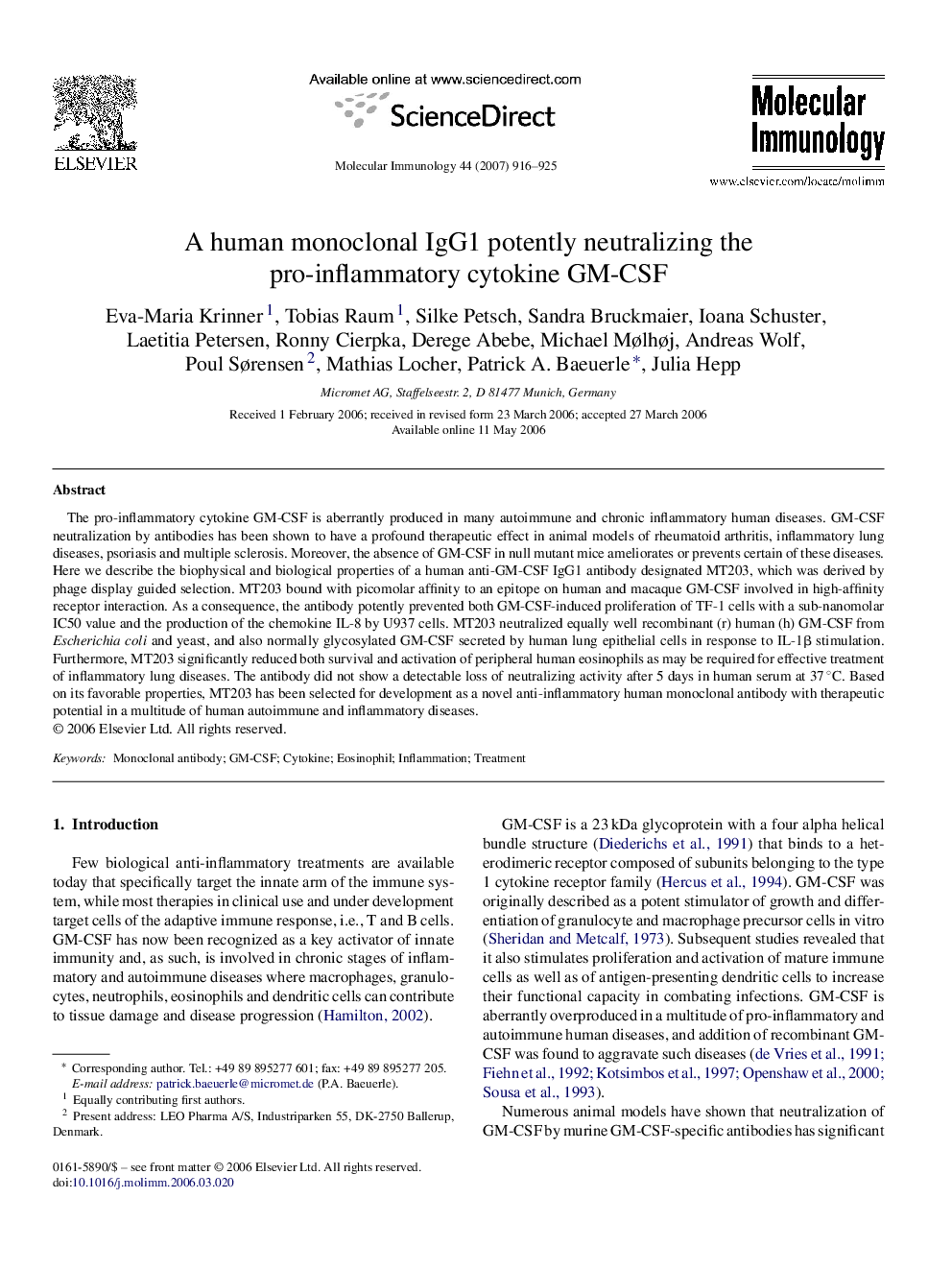| Article ID | Journal | Published Year | Pages | File Type |
|---|---|---|---|---|
| 2833317 | Molecular Immunology | 2007 | 10 Pages |
The pro-inflammatory cytokine GM-CSF is aberrantly produced in many autoimmune and chronic inflammatory human diseases. GM-CSF neutralization by antibodies has been shown to have a profound therapeutic effect in animal models of rheumatoid arthritis, inflammatory lung diseases, psoriasis and multiple sclerosis. Moreover, the absence of GM-CSF in null mutant mice ameliorates or prevents certain of these diseases. Here we describe the biophysical and biological properties of a human anti-GM-CSF IgG1 antibody designated MT203, which was derived by phage display guided selection. MT203 bound with picomolar affinity to an epitope on human and macaque GM-CSF involved in high-affinity receptor interaction. As a consequence, the antibody potently prevented both GM-CSF-induced proliferation of TF-1 cells with a sub-nanomolar IC50 value and the production of the chemokine IL-8 by U937 cells. MT203 neutralized equally well recombinant (r) human (h) GM-CSF from Escherichia coli and yeast, and also normally glycosylated GM-CSF secreted by human lung epithelial cells in response to IL-1β stimulation. Furthermore, MT203 significantly reduced both survival and activation of peripheral human eosinophils as may be required for effective treatment of inflammatory lung diseases. The antibody did not show a detectable loss of neutralizing activity after 5 days in human serum at 37 °C. Based on its favorable properties, MT203 has been selected for development as a novel anti-inflammatory human monoclonal antibody with therapeutic potential in a multitude of human autoimmune and inflammatory diseases.
